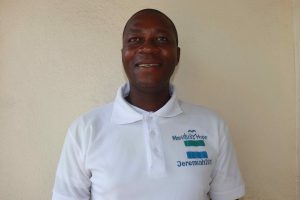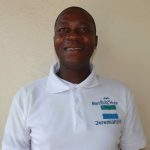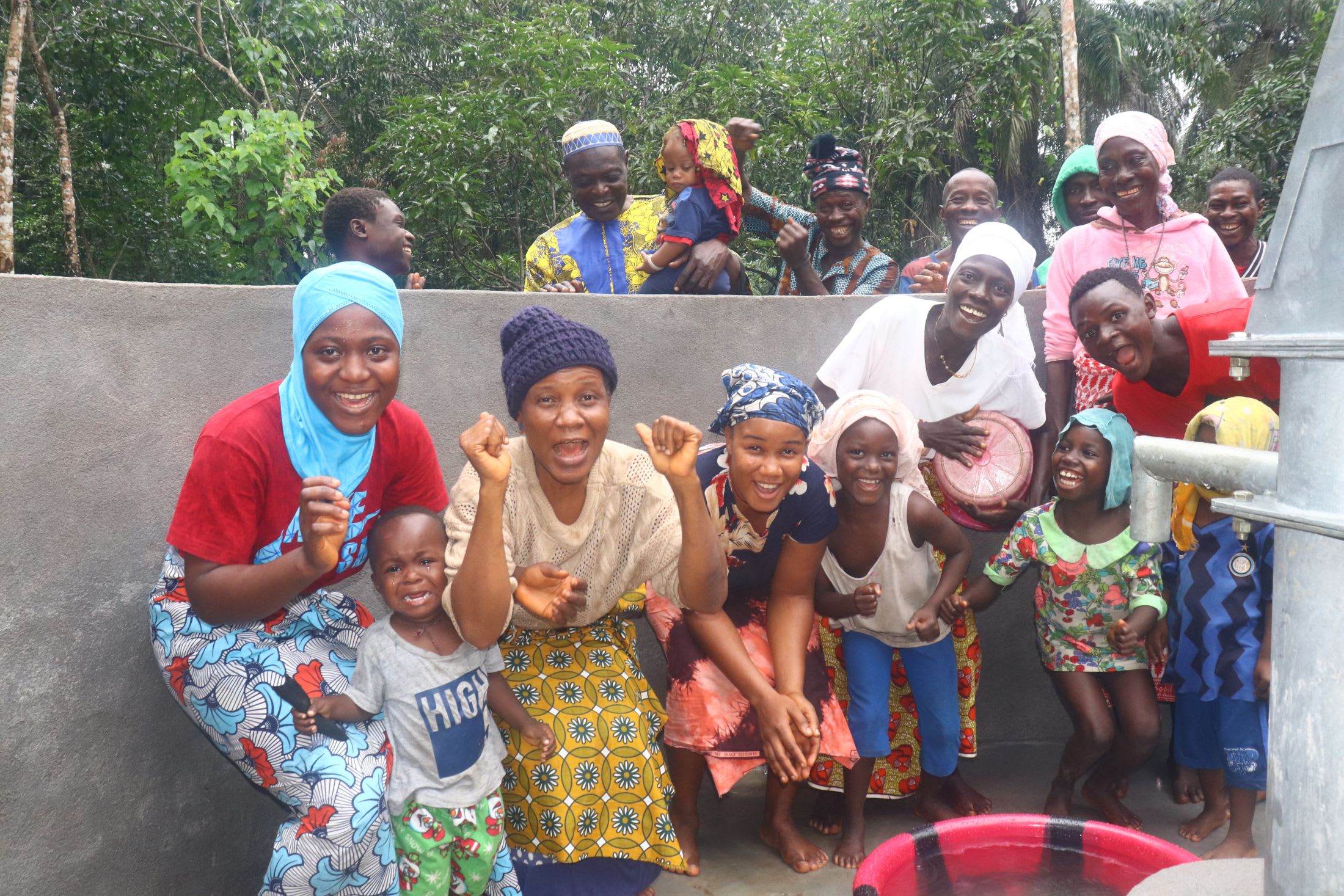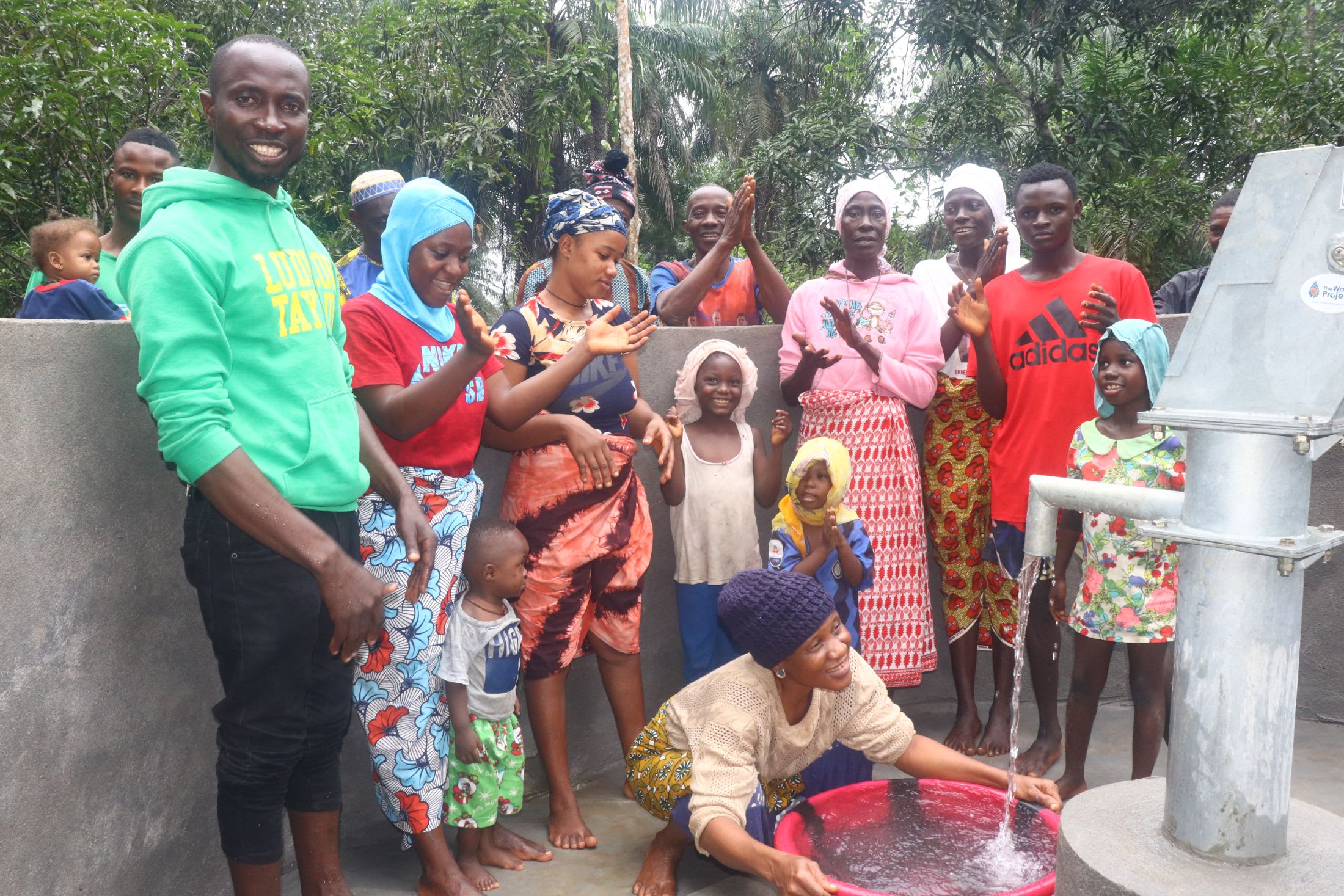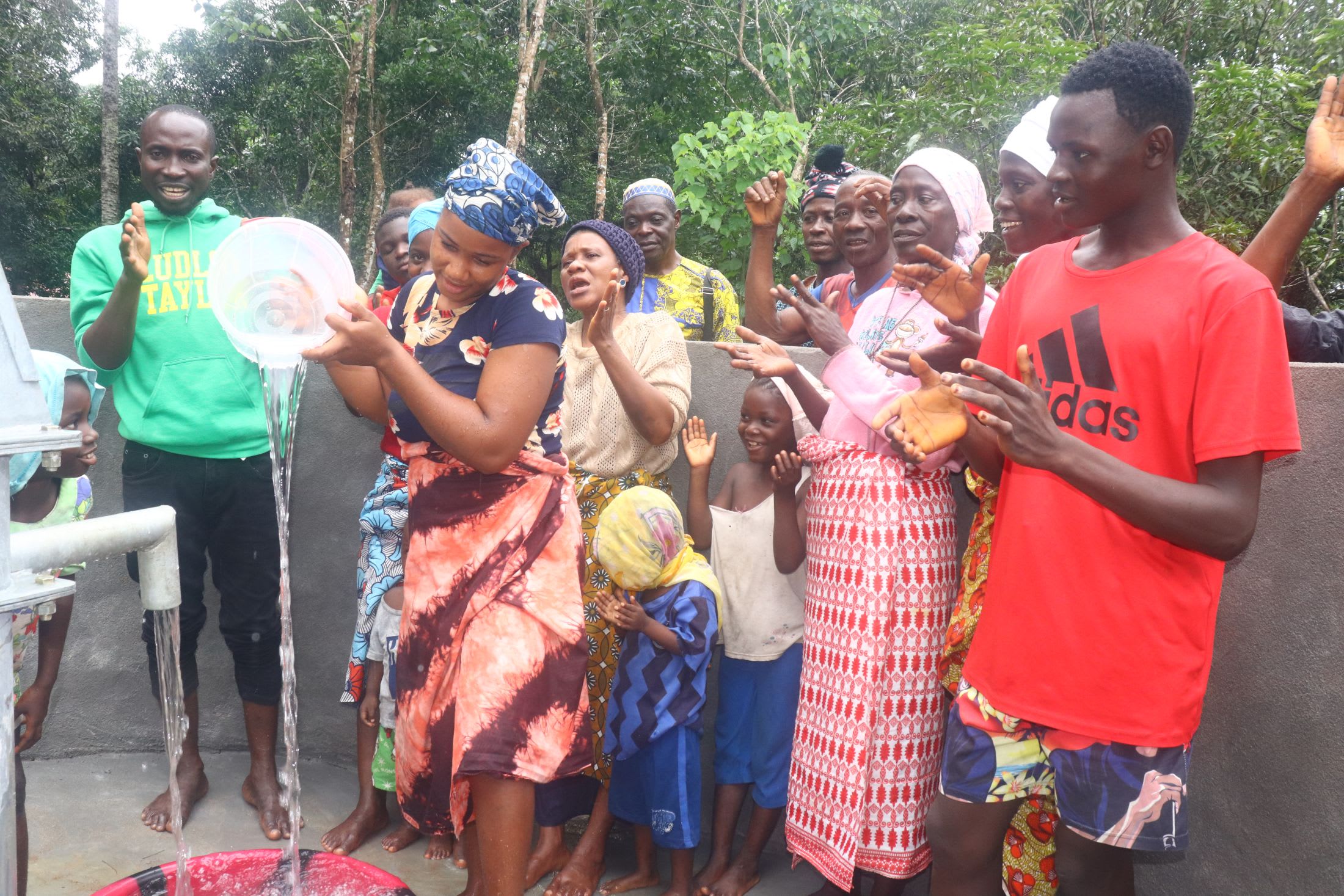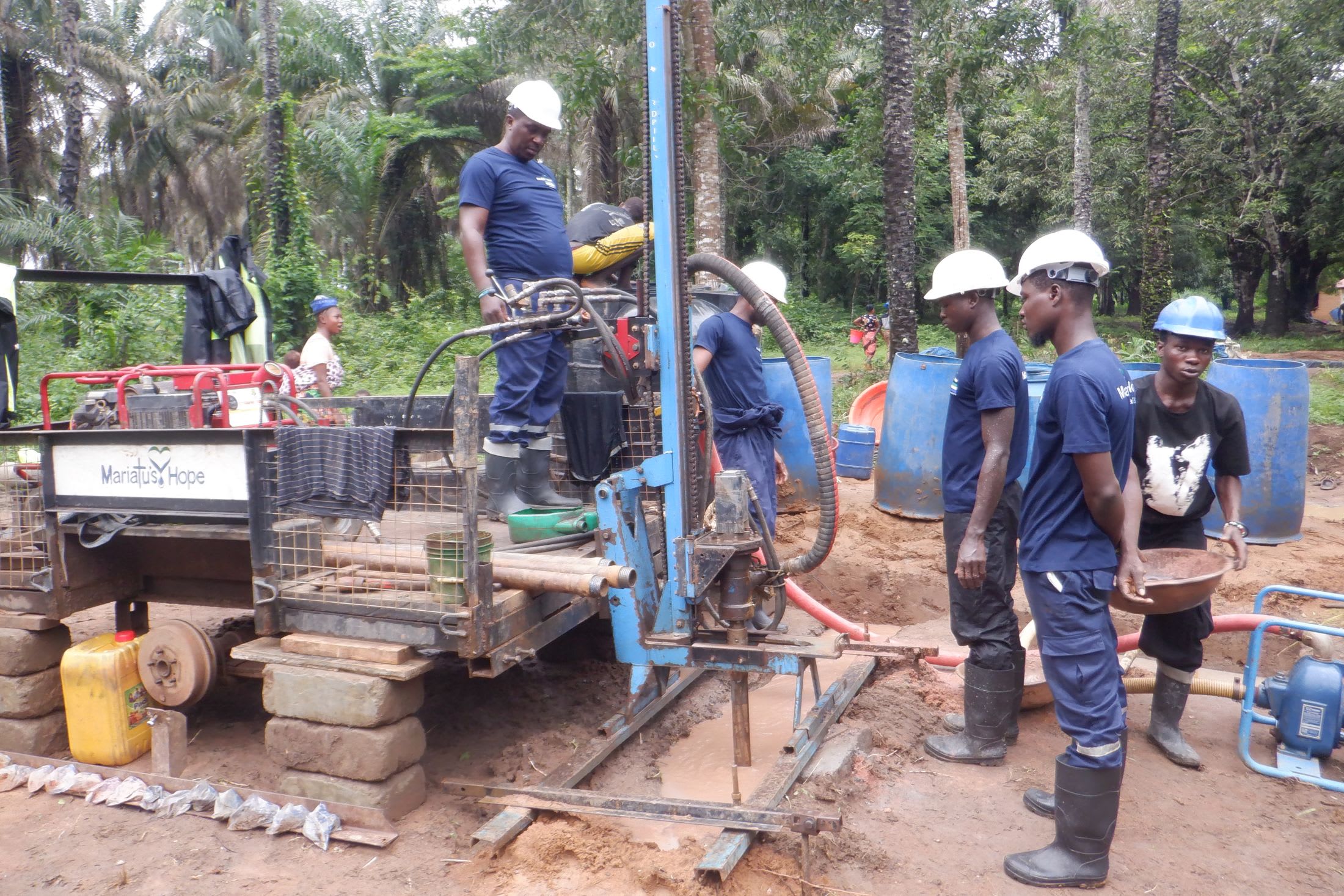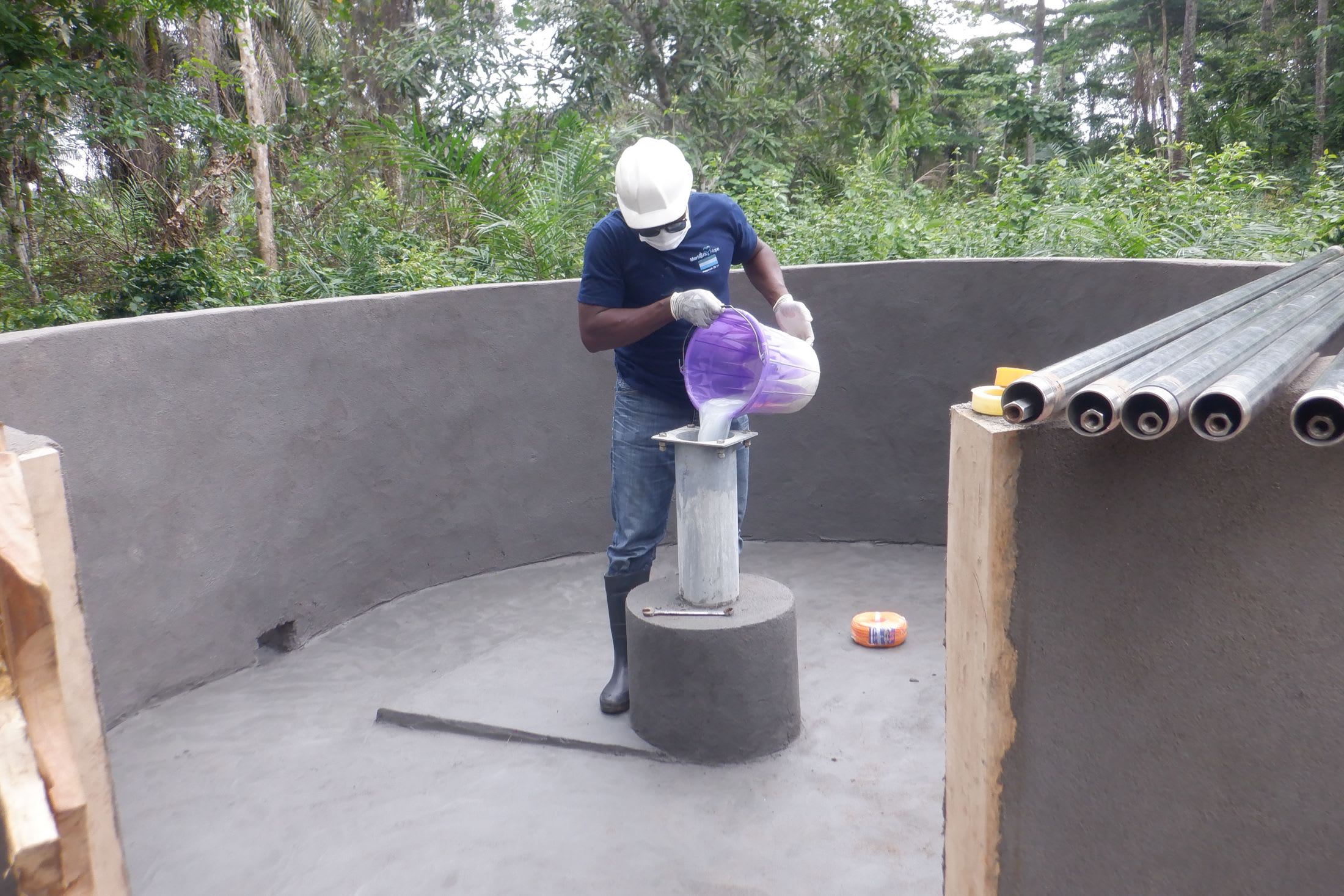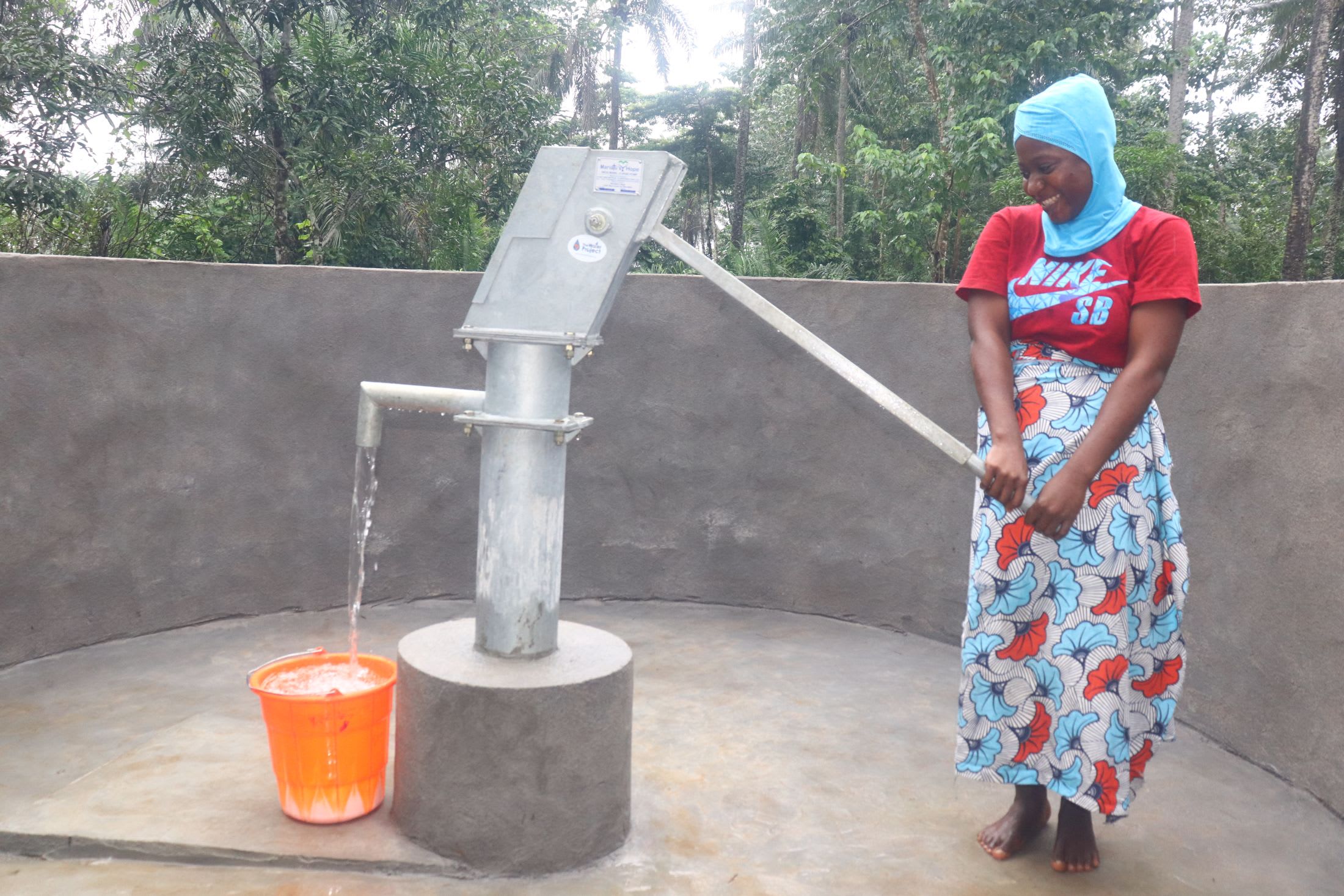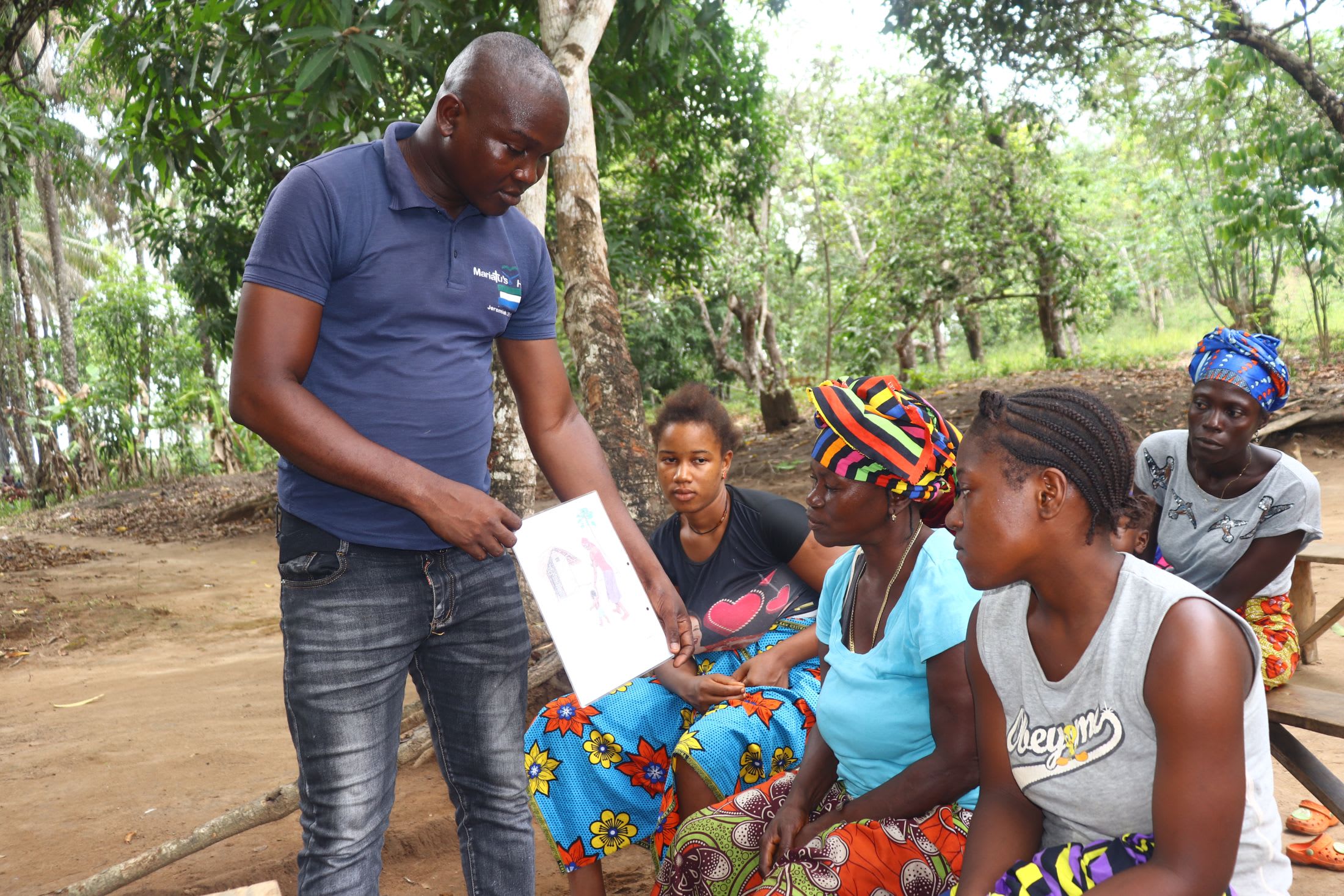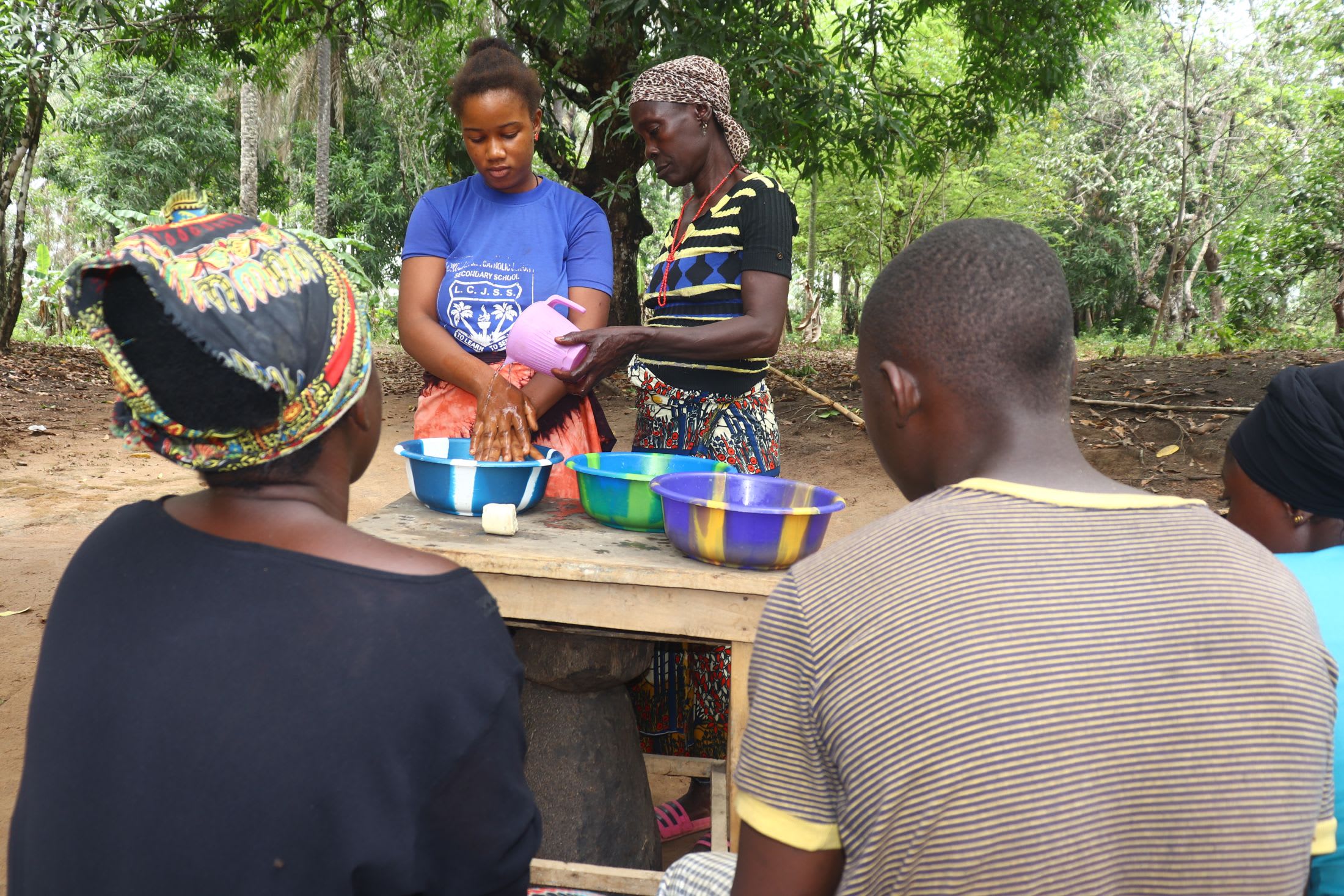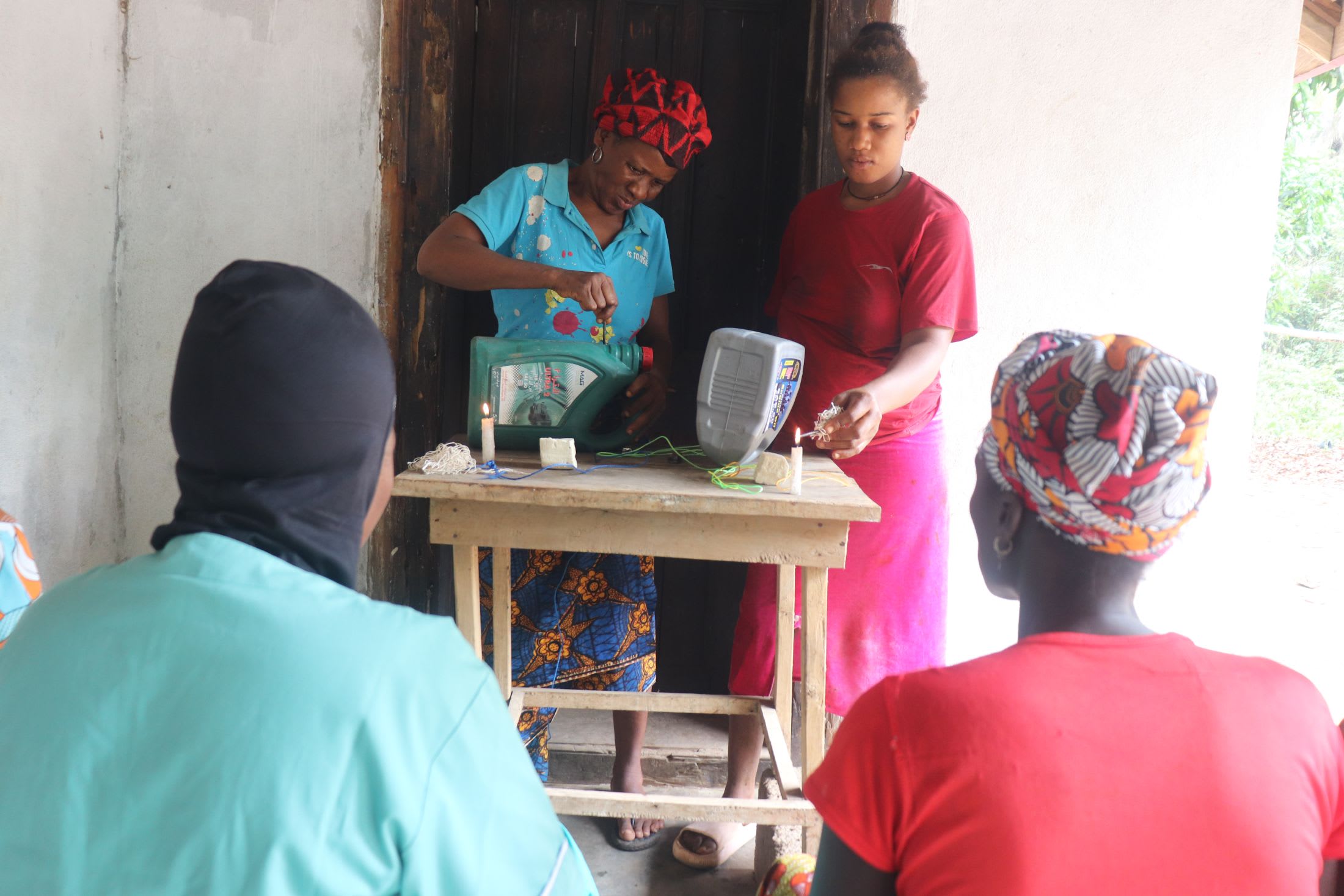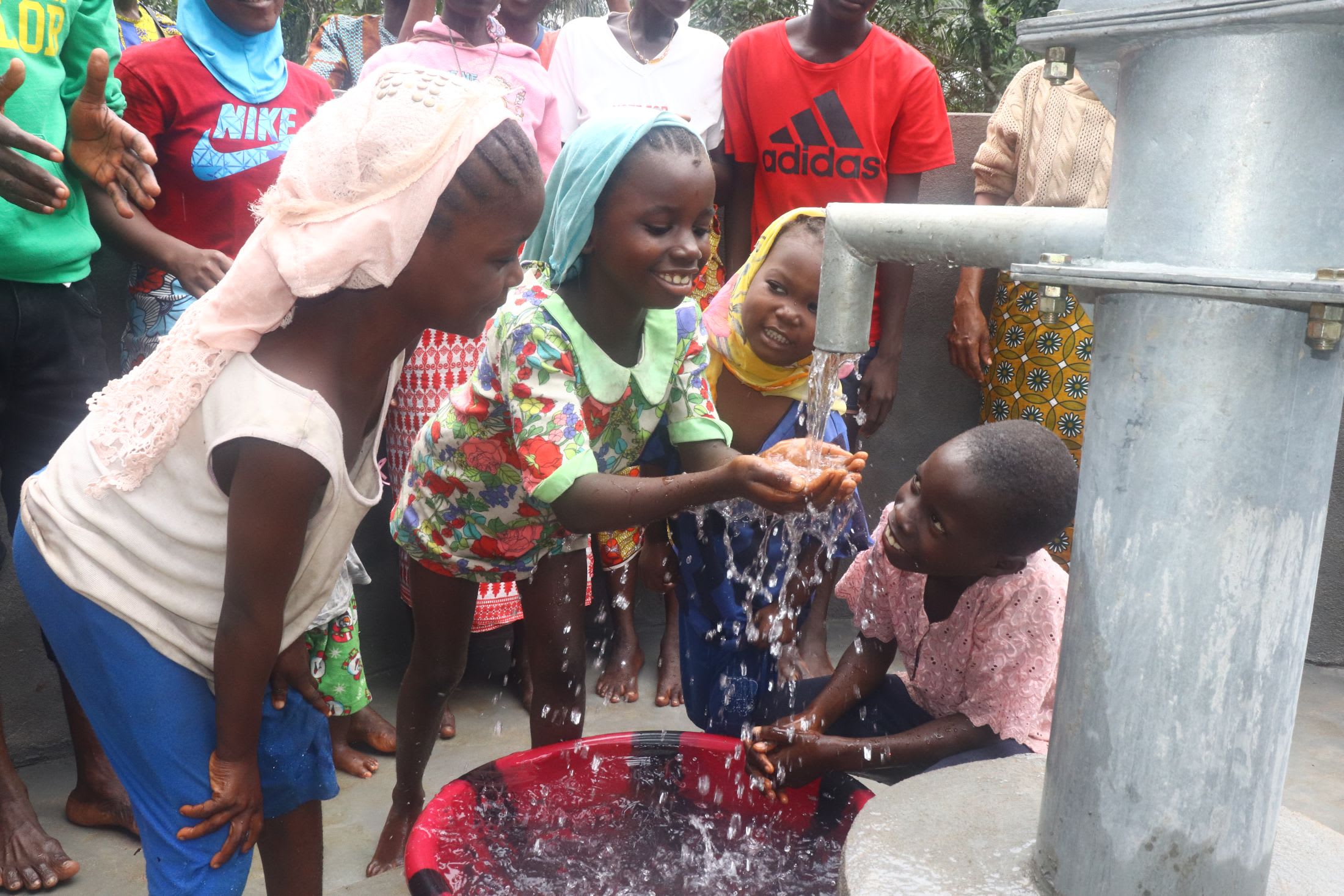Most of Madonkeh's 70 people farm or produce palm oil to earn a living. However, both of these activities require water, which is in very short supply. People can never make enough palm oil or produce enough crops to feed their families properly.
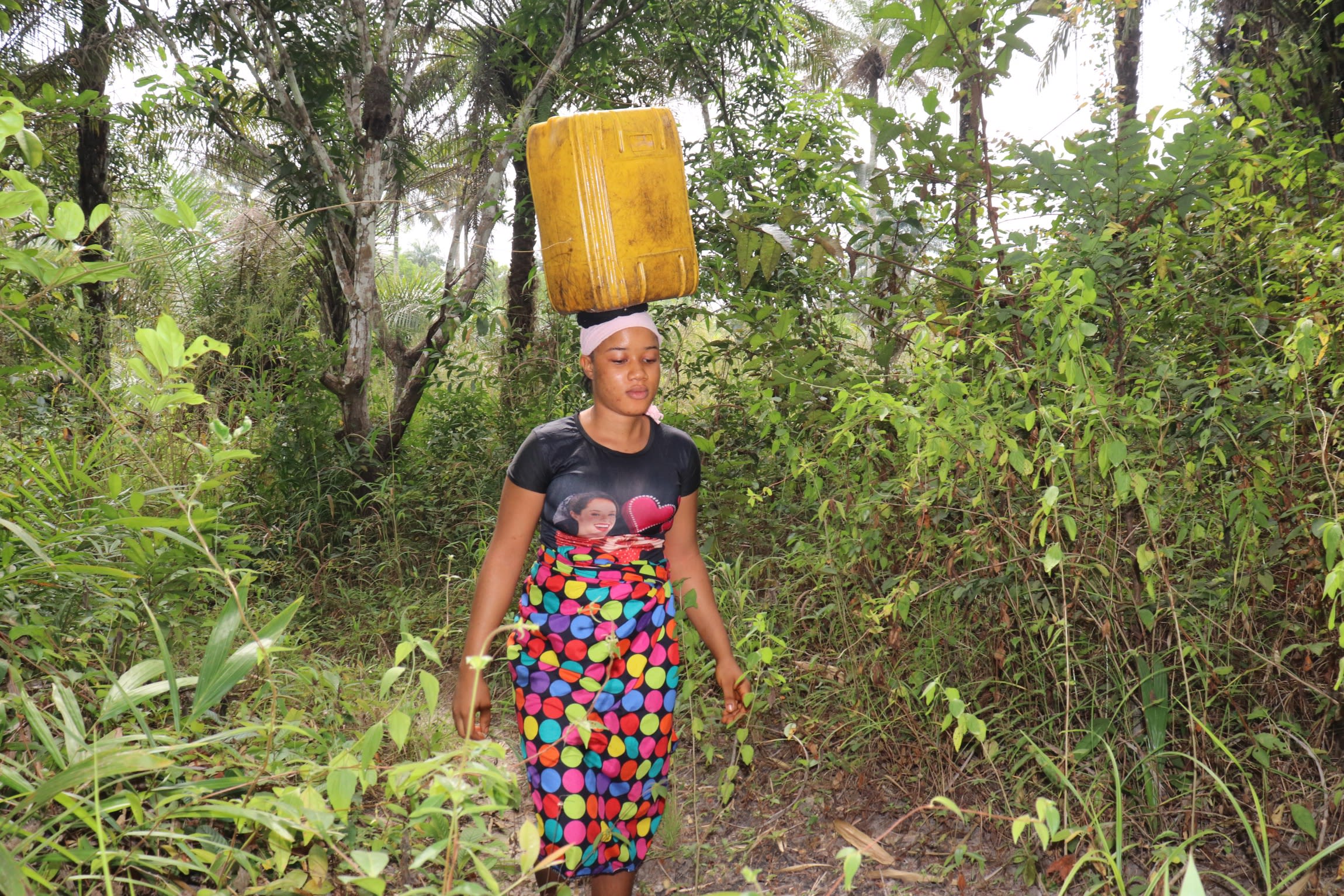
"I always find it hard to fetch water for domestic use," said 17-year-old Isatu (in the photo above). "The distance is far [on a] bushy and rough road. Sometimes I [am] not strong enough to fetch the quantity of water that would serve my family for a day."
The community's only well has been non-functional for longer than anyone alive can remember. It is an unprotected dug well without a hand pump that is seasonal for nearly half the year. When it does have water, it is not enough to serve the entire population, and people do not drink it because of the contamination, bad smell, and bad taste. Therefore, the only source of water available to Madonkeh's people is a nearby stream in a swampy area, which is around 400 meters from the village through a bushy area rife with predators: gorillas, fox, bush cats, and venomous snakes have all been known to attack people who venture to the swamp for water.
"Access to water is a great problem in this community," said 50-year-old Yaeah Kargbo (in the below photo). "It is not easy to reach the stream because the road is far, bushy, and dangerous. Sometimes when the sun is hot, I would not send my children because that is the time snakes become desperate and bite animals or human beings."
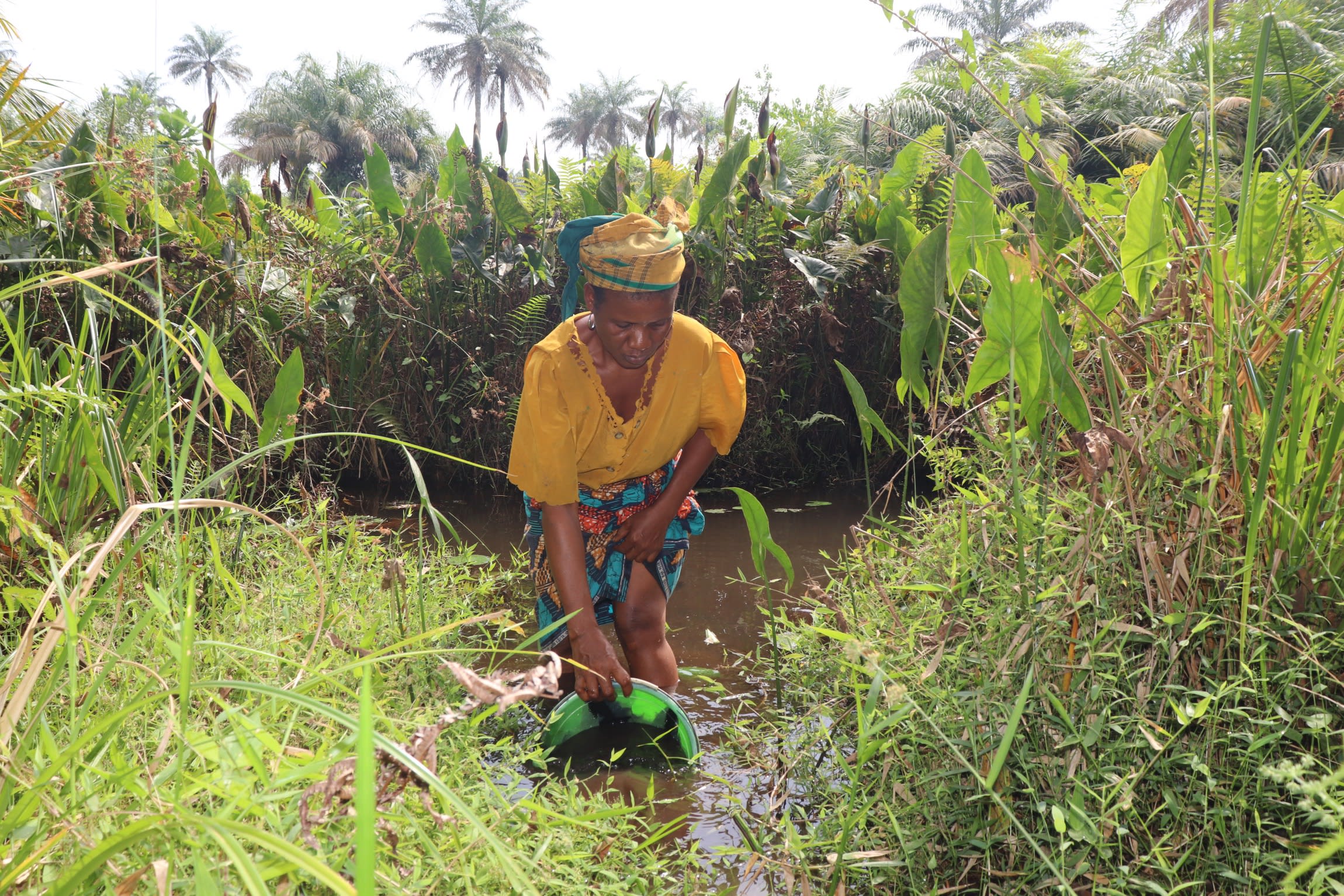
Isatu, from the earlier photo, explained, "I remember last when I saw a bush cat along the way to stream, I was frightened and dropped the bucket to run away. Since that time, I never go to the stream alone in the afternoon hours, especially when the sun is hot. I fear wild animals around the stream. I wait for [my] siblings to go together."
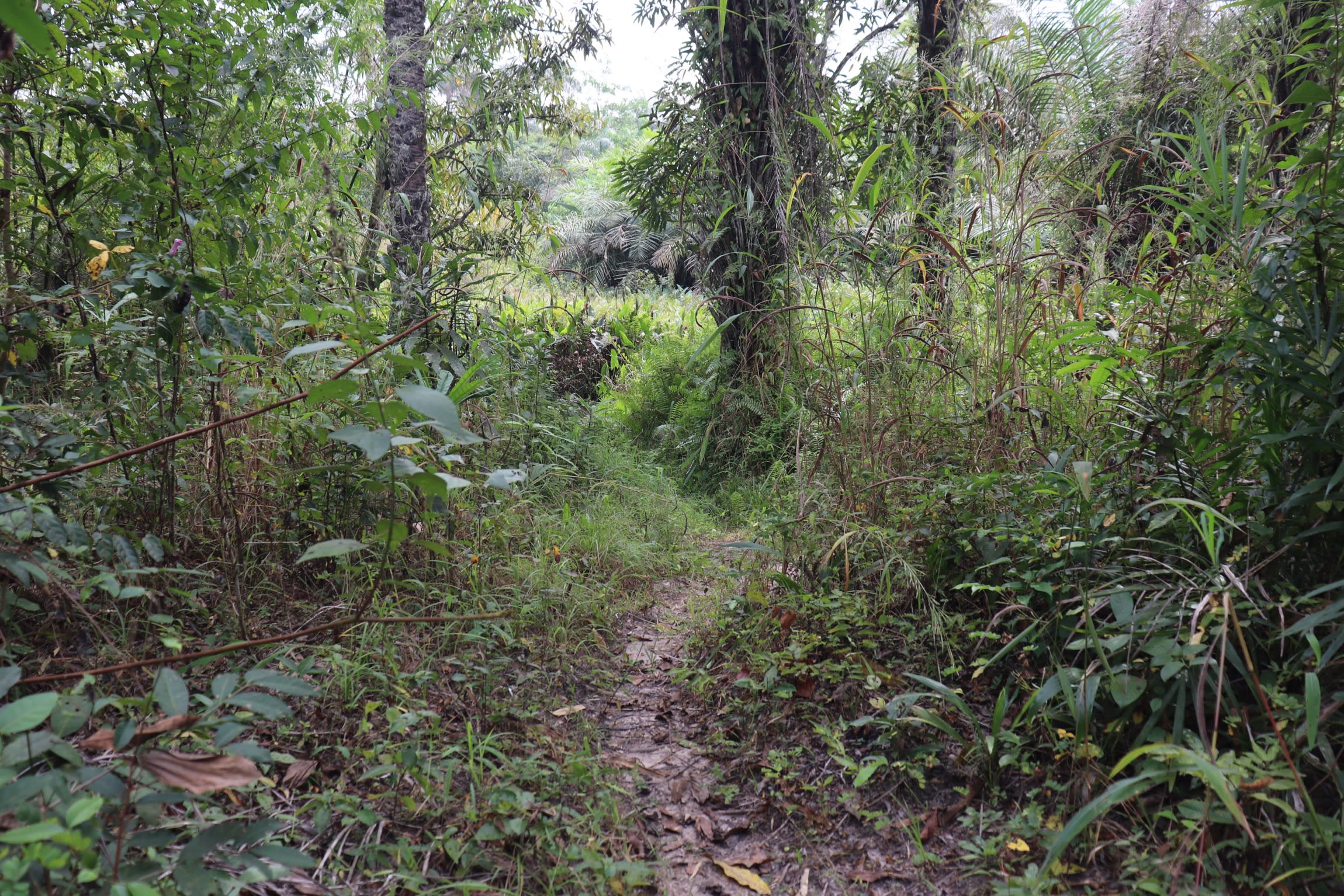
Not only is the stream dangerous to access, but whether it will actually hold enough water is a question that haunts each water-fetcher for two to three months each year during the drought seasons.
"Before, I used to produce over five rubber gallon containers of palm oil per day, but now it is difficult due to water constraints," Yaeah said.
Because the stream is far away, community members do their laundry and bathing along its shores. However, although this is more convenient than hauling heavy buckets back and forth all day long, this practice contaminates the water they drink, causing typhoid, diarrhea, and dysentery. People report that the water has a greenish tinge, a strange taste, and a slippery texture.
Drilling a new well within the confines of Madonkeh will free up so much time and energy for its people. They will no longer worry about meeting unfriendly animals in the bush, and their livelihoods will no longer be such a struggle to maintain.
The Proposed Solution, Determined Together...
At The Water Project, everyone has a part in conversations and solutions. We operate in transparency, believing it benefits everyone. We expect reliability from one another as well as our water solutions. Everyone involved makes this possible through hard work and dedication.
In a joint discovery process, community members determine their most advantageous water solution alongside our technical experts. Read more specifics about this solution on the What We're Building tab of this project page. Then, community members lend their support by collecting needed construction materials (sometimes for months ahead of time!), providing labor alongside our artisans, sheltering and feeding the builders, and supplying additional resources.
Water Access for Everyone
This water project is one piece in a large puzzle. In Kenya, Sierra Leone, and Uganda, we're working toward complete coverage of reliable, maintained water sources that guarantee public access now and in the future within a 30-minute round trip for each community, household, school, and health center. One day, we hope to report that this has been achieved!
Training on Health, Hygiene & More
With the community's input, we've identified topics where training will increase positive health outcomes at personal, household, and community levels. We'll coordinate with them to find the best training date. Some examples of what we train communities on are:
- Improved hygiene, health, and sanitation habits
- Safe water handling, storage & treatment
- Disease prevention and proper handwashing
- Income-generation
- Community leadership, governance, & election of a water committee
- Operation and maintenance of the water point

 Borehole Well and Hand Pump
Borehole Well and Hand Pump
 Rehabilitation Project
Rehabilitation Project








